Comments
- No comments found
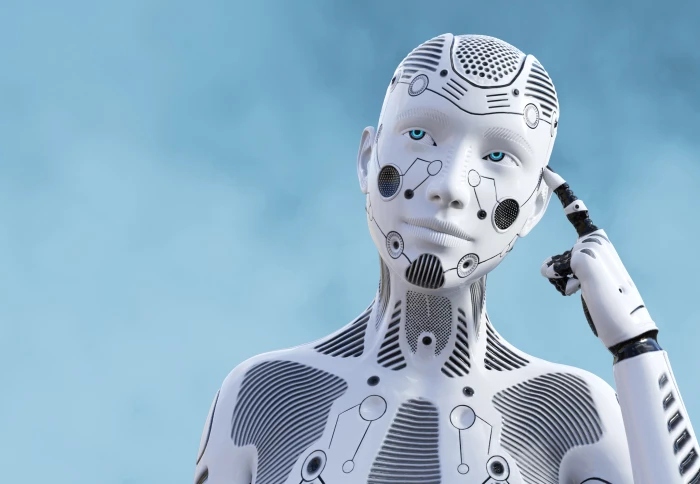
Artificial intelligence was coined in the summer of 1956. Most experts are confident that singularity will happen sooner in the future rather than later.
Artificial intelligence (AI) has become a technological reality for businesses and organizations across industries. Even if its benefits may not be always easy to quantify, AI has proven itself capable of improving process efficiency, reducing human errors and labor, and extracting insights from big data.
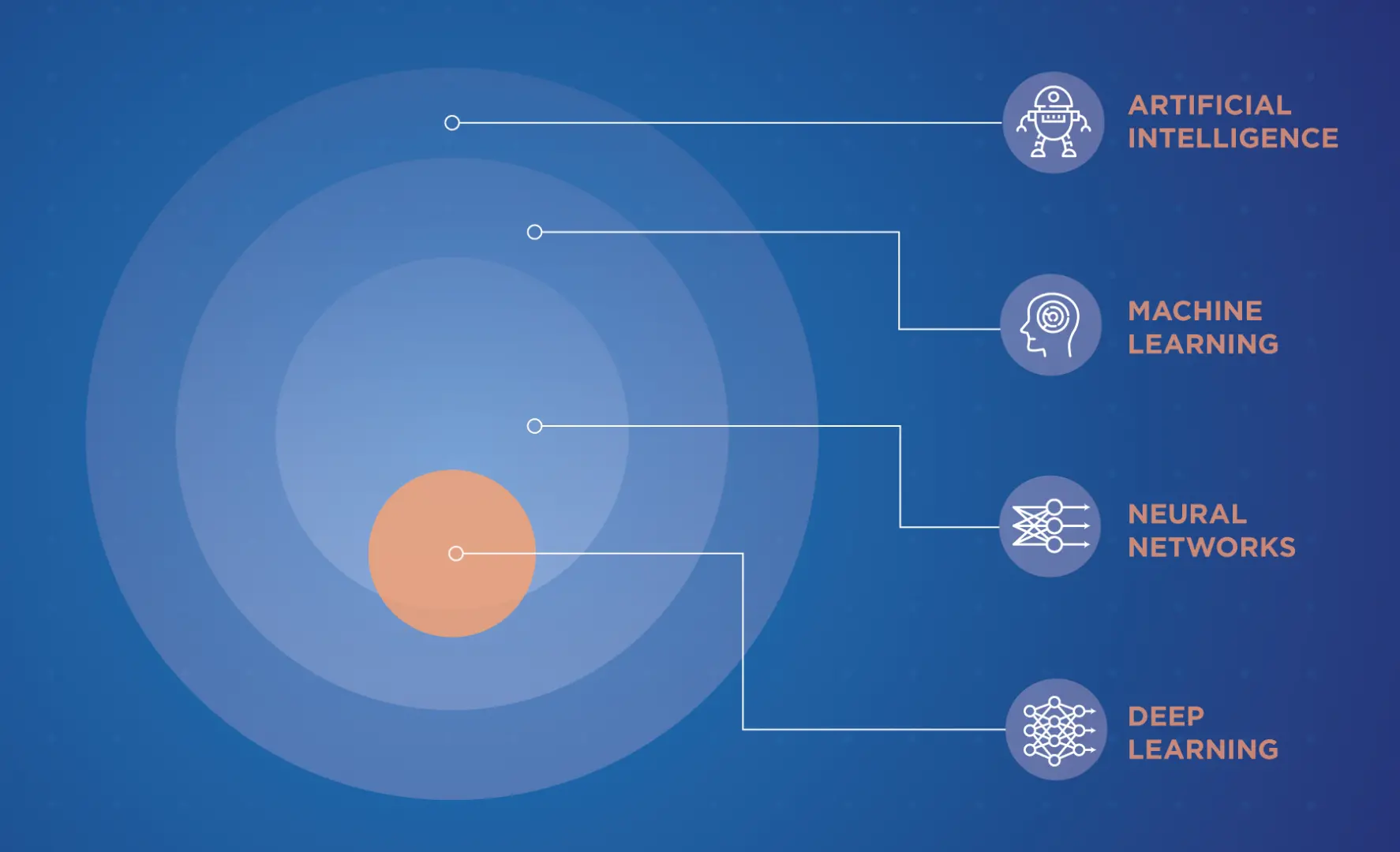
Scientists are still unable to reach technological singularity to surpass human intelligence with a view to outsmart, outperform or outdo it.
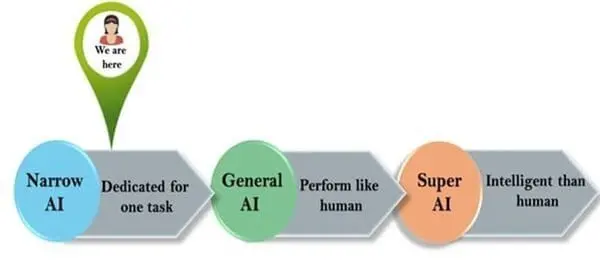
Reaching singularity could be a defining moment for humanity when machines reach a level of intelligence that exceeds that of humans. This topic is quite divisive amongst leading innovators such as Stephen Hawking and Elon Musk, who fear the dark side of artificial intelligence.
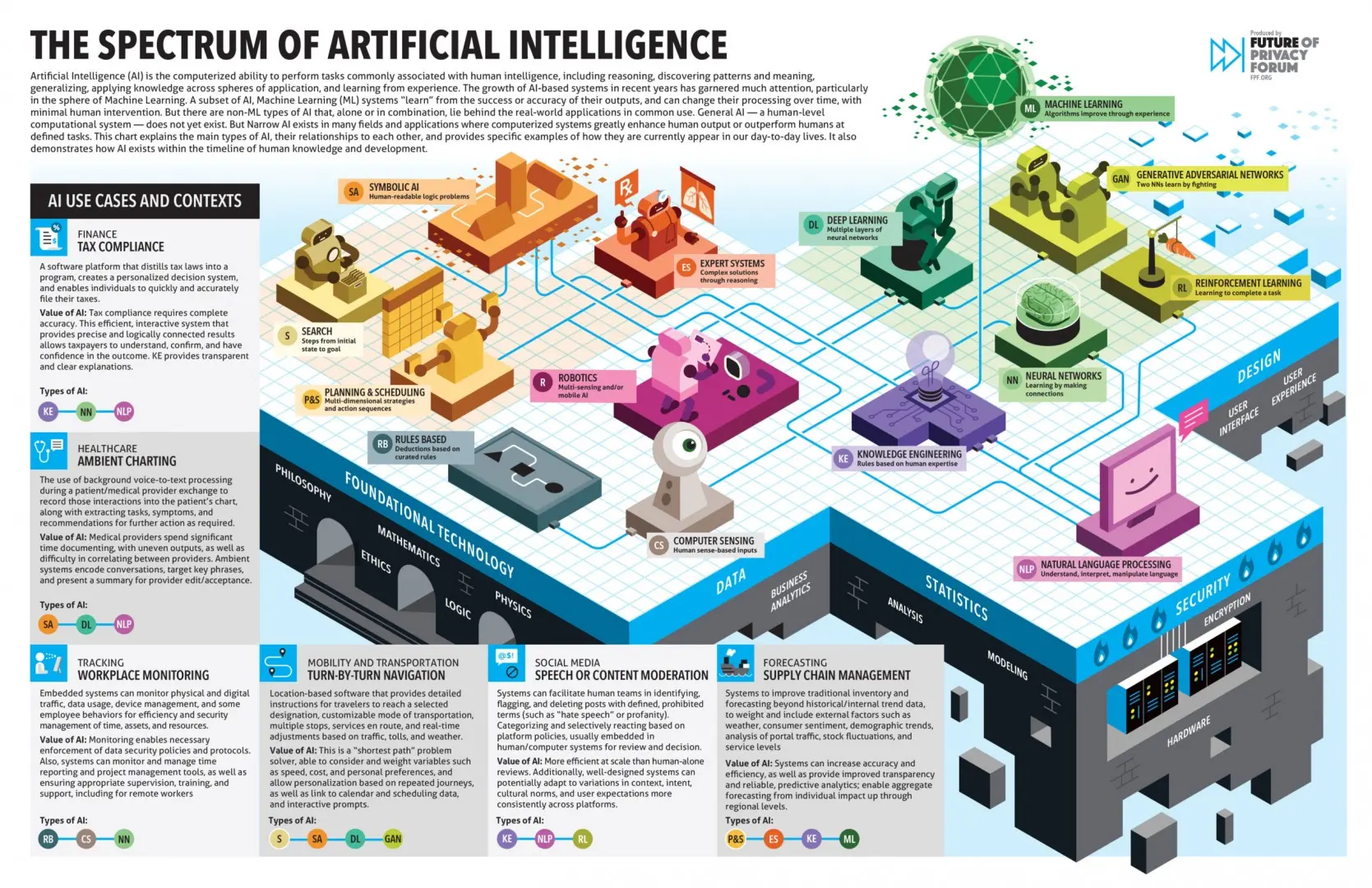
As of now, we have billions of general natural intelligence systems, like human beings, who managed to create all sorts of global risks and planetary threats to humanity.
What the world needs is an ethical artificial intelligence that can read, speak, hold a conversation, read emotions and make our planet a better place.
Experts predict that artificial general intelligence (AGI) will peak by 2040–2050.
Vernor Vinge introduced the term Technological Singularity in his Marooned in Realtime (1986) and later developed the concept in the Coming Technological Singularity (1993).
His definition of Singularity is known as the event horizon thesis saying that trans or post-human minds will imply a weirder future than we can imagine:
"Within thirty years, we will have the technological means to create superhuman intelligence. Shortly after, the human era will end. [...] I think it's fair to call this event a singularity. It is a point where our models must be discarded and a new reality rules. As we move closer and closer to this point, it will loom vaster and vaster over human affairs till the notion becomes a commonplace. Yet when it finally happens it may still be a great surprise and a great unknown."
The acceleration of technological progress has been the central feature of this century. We are on the edge of change comparable to the rise of human life on Earth.
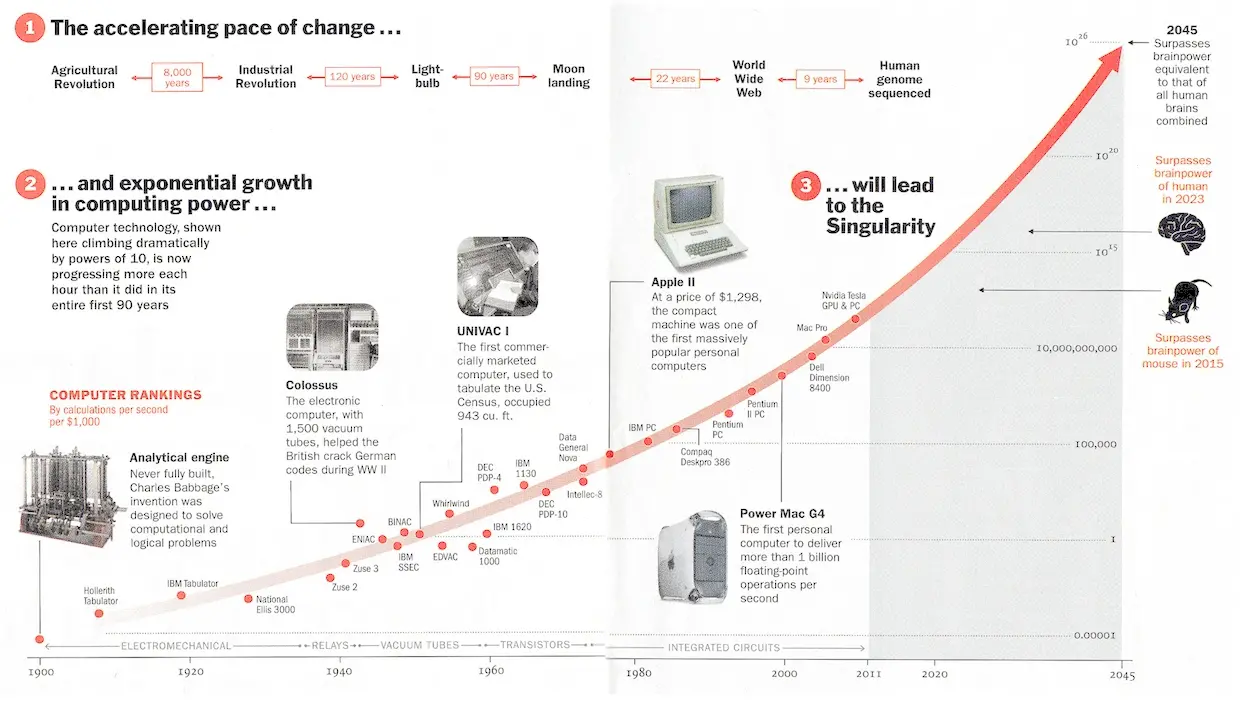
The precise cause of this change is the imminent creation by technology of entities with greater intelligence than human intelligence. There are several means by which science may achieve this breakthrough (and this is another reason for having confidence that the event will occur):
Artificial intelligence is changing human civilization, from how we work to how we travel to how we enforce laws, but reaching singularity could destroy millions of jobs.
Considerable problems of bias and neutrality aside, one of the most significant challenges facing AI researchers is how to give neural networks the kind of decision-making and rationalization skills we learn as children.
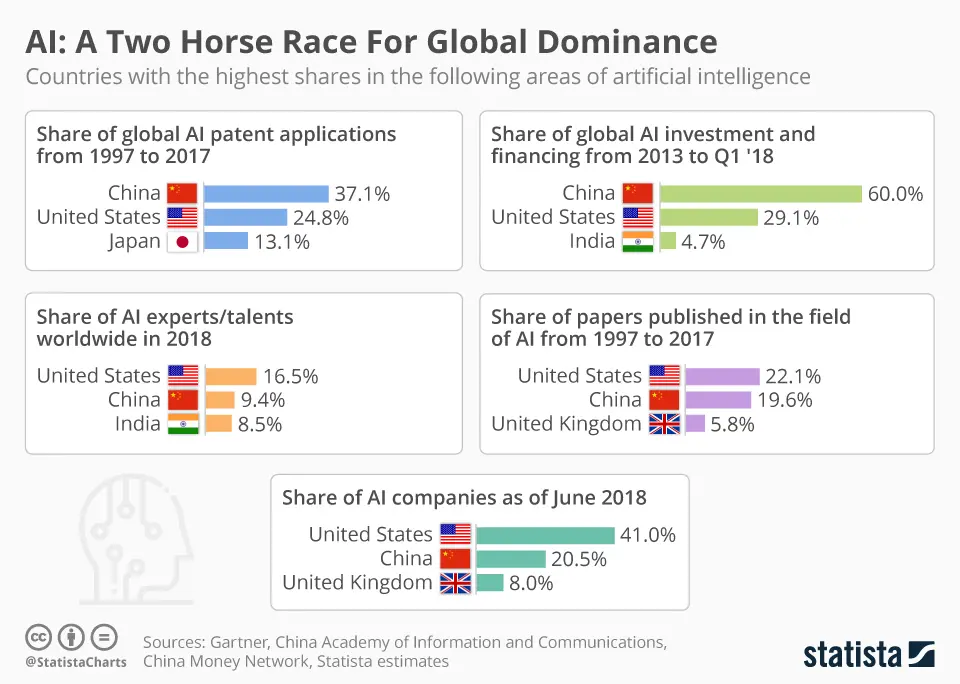
The geo-political landscape won't be the same again. China is currently leading the AI race. Artificial intelligence is the future of military supremacy. It comes with colossal opportunities, but also threats that are difficult to predict. Whoever becomes the leader in this sphere will become the ruler of the world.
A Composite AI, according to Gartner's 2020 Hype Cycle for Emerging Technologies, is the "combination of different AI techniques to achieve the best result.”
We are very close to a tipping point at which “technological growth becomes uncontrollable and irreversible, resulting in unforeseeable changes to human civilization”.
The only way to survive and thrive in the trans-human era of singularity is to collaborate with artificial intelligence.
Dramatic changes in the rate of economic growth have occurred in the past because of technological advancement.
Based on population growth, the economy doubled every 250,000 years from the Paleolithic era until the Neolithic Revolution.
The new agricultural economy doubled every 900 years, a remarkable increase. In the current era, beginning with the Industrial Revolution, the world's economic output doubles every fifteen years, sixty times faster than during the agricultural era.
If the rise of superhuman intelligence causes a similar revolution, argues Robin Hanson, one would expect the economy to double at least quarterly and possibly on a weekly basis.
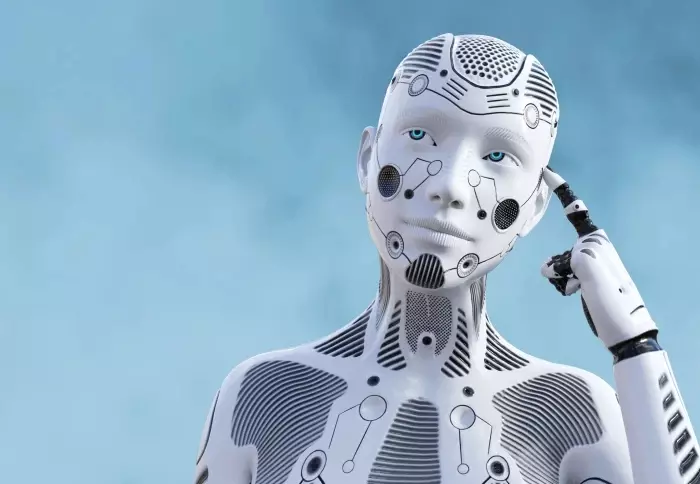
Scientists expect that widespread automation driven by artificial intelligence will displace workers across many industries. Even if the effects of automation are exaggerated, it is clear that the labor market will need to adjust.
Employees shouldn’t cower in fear of being rendered obsolete. They should use these emerging innovations as motivation to determine which industries are at the highest risk of automation, and proactively take steps to improve their job security by continuing to develop new skills or by exploring opportunities in other industries.
The rise of singularity could unintentionally magnify the importance of the arts, as creating quality works of art, music, film, and television are still a uniquely human domain.
Workers that are already in positions at high risk of becoming automated could of course look into management or sales department opportunities at their companies that require more interpersonal skills that artificial intelligence is still years away from replicating.
Be ready to upskill where possible. There is also a possibility of a trans-huma era, where humans will have to merge with machines in order to survive. As with every big change, the way to survive the AI revolution is to embrace the partnership.
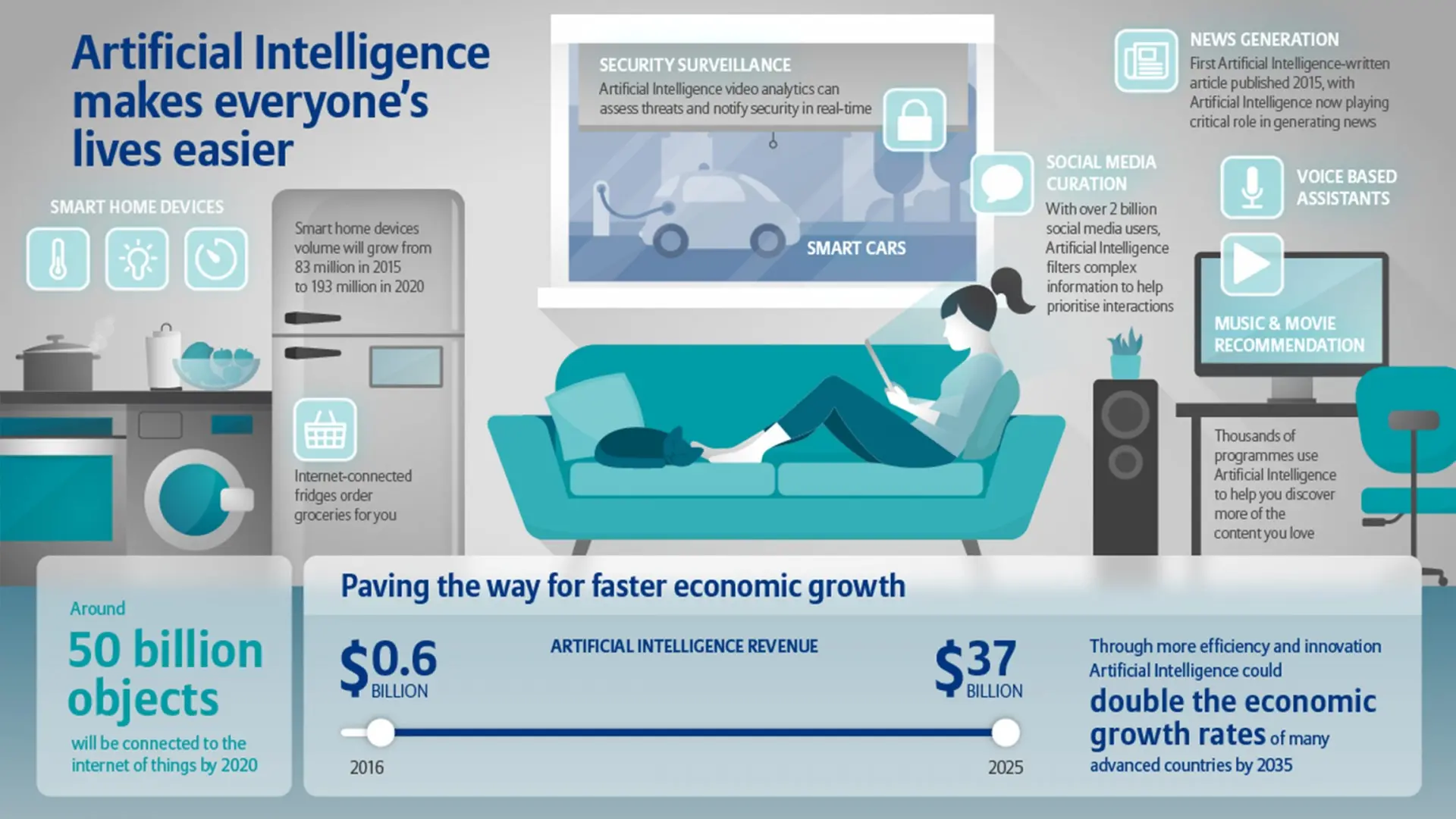
Artificial intelligence will need to go through heavy regulatory scrutiny before singularity and commercial artificial general artificial approval move forward. Humans should not fear singularity. The nature of the human race is that we will always strive towards the next advancement. Resisting change out of fear of its disadvantages may work in the short term but will only make you more likely to be left behind in the future. It's time to embrace artificial intelligence and know more about the technology to prevent its dark side. Artificial intelligence will increasingly become a part of society. Instead of workers fearing AI, they can look at new possibilities to explore. Artificial intelligence could go rogue if it's developed by the wrong companies, but if regulated with a purpose and vision of working together with humans, it could change the future of humanity. The artificial intelligence revolution is indeed underway.
Leave your comments
Post comment as a guest